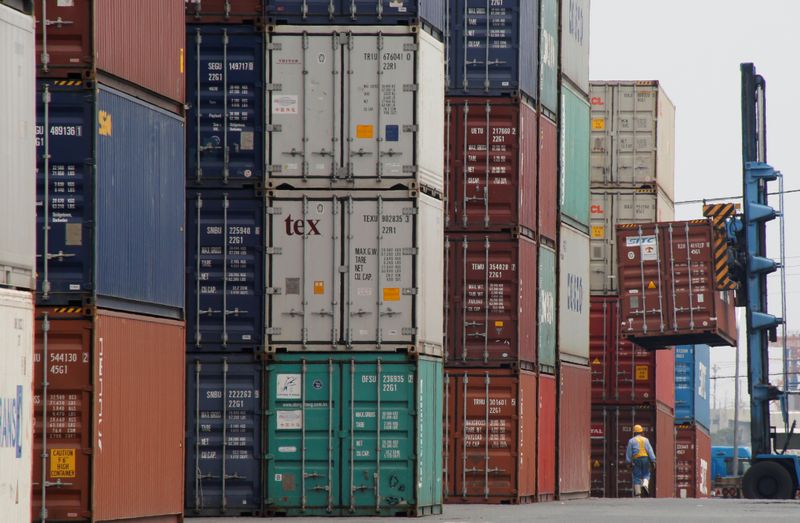By Daniel Leussink
TOKYO (Reuters) -Japan's exports fell in November, dashing expectations for an end to the two-year run of declines, largely due to weaker U.S.- and China-bound shipments and suggesting a slower pace of recovery for the world's third-largest economy.
The trade data is likely to be of some concern for policymakers counting on solid external demand to boost factory output and broader corporate activity to revive the economy.
"The risk that Japan's economy will stall in the first quarter is gradually becoming stronger," said Takeshi Minami, chief economist at Norinchukin Research Institute.
"It feels like Japan's economic recovery is somewhat behind that in China and the United States and European countries given the exports trend and state of domestic demand."
Ministry of Finance (MOF) data out on Wednesday showed exports fell 4.2% in November from a year earlier, defying the economists' median estimate of a 0.5% increase in a Reuters poll.
That marked the 24th straight month of decline, the longest stretch on record based on comparable data going back to 1979, and follows a 0.2% drop in the previous month.
Japan's exports have failed to match the strong recoveries seen in major Asian manufacturing rivals China and South Korea, which have benefited from brisk global demand for technology that enables remote working during the pandemic.
In contrast, analysts said Japanese manufacturers face challenges selling high-value capital goods, such as factory machinery, to overseas markets at a time when growing demand for consumer goods is driving the recovery in many of those economies.
"Goods used in companies' capital spending are seeing the biggest delay, even as cars are being sold well and the rebound in semiconductors has been quite strong," said Atsushi Takeda, chief economist at Itochu Economic Research Institute.
Takeda added that a long stretch of import declines, which fell for their 19th straight month in November, pointed to persistent weakness in domestic demand, highlighting Japan's relatively slow economic recovery.
By destination, shipments to the United States contracted for the first time in three months, falling 2.5% in November versus the same month a year earlier, as weak demand for aircraft equipment helped offset higher car exports.
Exports to China, Japan's largest trading partner, rose at the slowest pace in five months, growing 3.8%, driven by communication devices.
Shipments to Asia fell for the first time in two months, decreasing 4.3%, while those to the European Union dropped 2.6% in November.
Imports shed 11.1% in November compared with the same month a year earlier, versus the median estimate for a 10.5% decrease. Japan's trade surplus narrowed to 366.8 billion yen ($3.54 billion), versus the median estimate for a 529.8 billion yen surplus.
Japan's cabinet on Tuesday approved a third supplementary budget to fund a fresh $708 billion stimulus package, which includes about 40 trillion yen in direct fiscal spending and focuses on investment in new growth areas such as green and digital innovation.
Data last week confirmed the economy rebounded sharply in the third quarter from its biggest postwar slump in April-June. A private-sector survey showed on Wednesday Japan's factory activity came within striking distance of stabilisation in December, adding to signs that the economy is on the mend.

($1 = 103.6300 yen)